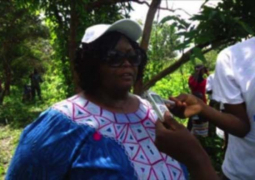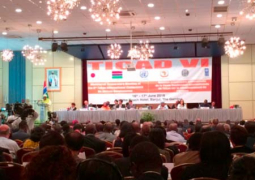Experts from within the Economic Community of West African States (ECOWAS) are currently in Banjul to discuss education and training, which is in line with ECOWAS protocols in education, human resource development and social and cultural affairs.
The forum, underway at the SunSwing Hotel, is being held from 2 to 6 December 2013.
Participants will assess the progress made in the execution of recommendations of the fourth conference held in Abuja in 2012 on education and training in the region.
Delivering his statement on behalf of the Minister of Higher Education, Research and Technology, permanent secretary Dr Cherno Omar Barry at the Ministry of Higher Education, Research and Technology said the convergence of ministers of education and their experts, ready to provide updates, validate documents and make recommendations for future actions, is “apt and timely for the realization of our noble objectives”.
Mr Barry explained further that ECOWAS member states are all poised to promoting relevant quality education at all levels within the frameworks of the countries’ respective education policies and implementation strategies which are also aligned to the ECOWAS protocols on Education and Training.
Professor Abdoulie Maga, director of education, culture, science and technology at the ECOWAS Commission, who delivered a speech on behalf of Dr Adrienne Diop, Commissioner of Human Development and Gender, said education is a veritable tool for improving individuals’ general well-being and societies’ socio-economic development.
Ultimately related to the promotion of education and training, he noted, is special progress towards better governance, more effective conflict prevention and resolution, healthy competitiveness, improved health, improved access to education and training, gainful employment, wealth creation, and accelerated poverty reduction and social emancipation.
Professor Maga recalled that the second edition of the meeting of ministers held at Accra, Ghana, in 2004 dwelled extensively on resource mobilization and strategies for implementation of the poverty programme.
The meeting also adopted the promotion of learning as a priority to bridge the digital divide, to improve access to quality education through ICT and to facilitate skills development with the end result of reducing unemployment and poverty in the region, he said.




